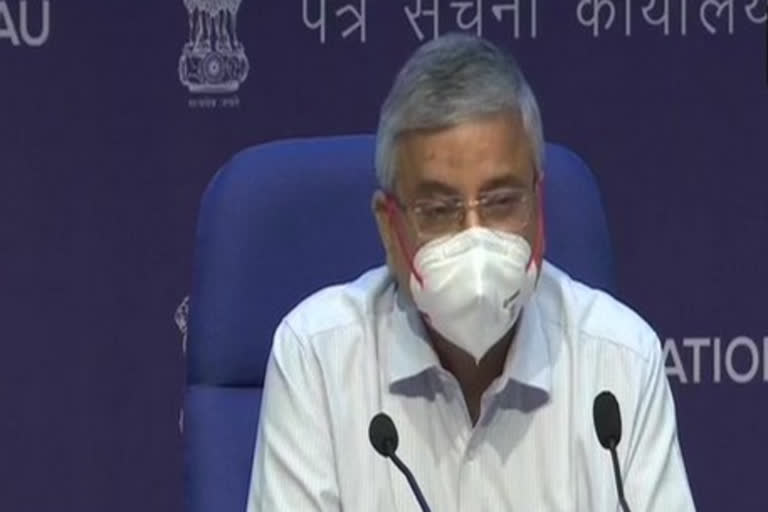New Delhi: Dr Randeep Guleria, Director of All India Institue of Medical Sciences (AIIMS) Delhi on Monday said that people with low immunity are the ones affected by mucormycosis (black fungus) adding that maintenance of hygiene is the major safeguard against fungal infections.
Dr Guleria says it is better not to use the term black fungus while talking of mucormycosis, as it leads to a lot of avoidable confusion.
Addressing a Union Health Ministry briefing on COVID-19, Guleria said "Black fungus is another family; this term got associated with mucormycosis due to the presence of black dots among the culture of white fungal colonies. In general, there are various types of fungal infections such as candida, aspergillosis, cryptococcus, histoplasmosis and coccidioidomycosis."
"Mucormycosis, candida and aspergillosis are the ones observed more in those with low immunity. These fungi are mainly found in sinuses, nose, bone around the eyes and can enter the brain. They are occasionally found in lungs(pulmonary mucormycosis) or in the gastrointestinal tract," he added.
"Mucormycosis is the fungi mostly seen on COVID-19 recovered patients, Occasionally Aspergillus is reported and very few instances of Candida are being seen," he further said.
"The colour of fungus can be seen differently if it develops in different areas." he said adding that "the number of cases being reported is increasing, but it is not a communicable disease, meaning it does not spread from one person to another like COVID-19 does."
Read: Bring centralised COVID vaccine procurement, allocation policy: Delhi govt to Centre
Guleria said that 90 - 95 per cent of patients getting infected with Mucormycosis are found to have been either diabetic or taking steroids.
"Some warning signs for mucormycosis such as headache, rusting or bleeding from nose, swelling below the eye, lowering of facial sensation, if observed in high-risk patients or those taking steroids, need to be informed to doctors so that early diagnosis and treatment can be given," he warned adding that immediate medical attention should be sought in such cases.
"Candida fungal infection can manifest with symptoms such as white patches in the mouth, oral cavities and tongue. It can infect private parts and can also be found in the blood (in which case it can become serious). Aspergillosis, which is relatively not common, affects and invades the lungs by creating cavities in the lungs," he added.
Guleria reminded that regular washing of hands and ensuring that Oxygen apparatus being used are cleaned regularly is imperative.
Regarding Post COVID-19 symptoms, Guleria said, "There are few symptoms that are seen post COVID. If the symptoms are seen for 4-12 weeks, it is called ongoing symptomatic COVID or post-acute COVID syndrome. If symptoms are seen for more than 12 weeks, it is called post-COVID syndrome."
Read: Bangladesh drops 'except Israel' clause from passport
"Chronic fatigue syndrome is seen, which requires symptomatic treatment. There is another symptom generally termed as 'brain fog' on social media, seen in COVID recovered who find difficulty in concentration & suffer from insomnia & depression," he further said.
"It has been said that children will be infected the most in the third wave but Pediatrics Association has said that this is not based on facts. It might not impact children so people should not fear," he added.
With 4,454 more fatalities in the last 24 hours, India's official death toll due to COVID-19 has reached over 3 lakh.
The country saw 2,22,315 new cases in the last 24 hours. A total of 2,40,842 fresh infections were reported on Sunday and 2,76,070 new COVID-19 cases on Saturday.
(ANI)



